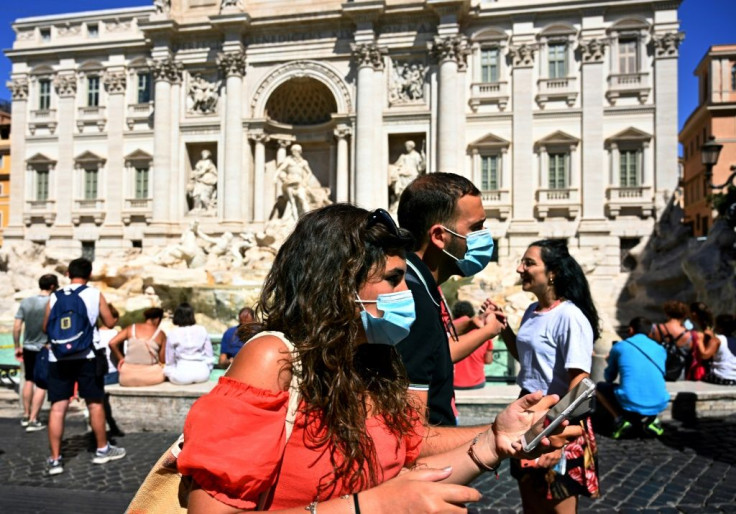Coronavirus Update: Half Of COVID-19 Survivors In Italian City Still Struggle With Virus' Aftermath

KEY POINTS
- Survivors in Bergamo struggle with problems like inflammation, clotting and breathing difficulties
- Many still feel they have not been cured of the disease, six months after contracting it
- One patient developed dot-like lesions and short-term memory loss
The worst is still not over for the COVID-19 survivors in one of the hardest-hit cities in Italy six months after the pandemic swept through their community. More than half of the survivors in Bergamo are still struggling with the long-term health effects arising from the disease, doctors say.
The pandemic peaked in Bergamo, Italy in March and April and many in the city still feel they are not fully cured.
Dr. Serena Venturelli, an infectious-disease expert at the Pope John XXIII Hospital, revealed startling details on recovered patients who were called back for an examination of their heart, lungs and blood. Venturelli told the Washington Post that the virus was "officially gone" from the survivors, but "almost half" said no when asked if they actually felt cured.
Doctors in Bergamo say while does COVID-19 creates adverse health effects in the human body, these effects are not the same for everyone. What one survivor experiences after contracting the deadly virus may differ from another's.
Of the 750 patients that the doctors screened, 30% were found to be suffering from inflammation and clotting. Another 30% still showed breathing difficulties and lung scarring. Some even had a risk of organ failure.
Marco Rizzi, the head of the infectious-disease unit at the hospital, said the survivors' experience is something new. While there may be those who already had health issues before they were struck by COVID-19, what doctors are now seeing are not versions of those old health issues.
For instance, patients have reported experiencing hair loss, severe fatigue, leg pain and tingling in the extremities. Worse, there is no clear advice that can be given on when the symptoms will stop.
One of the "novel" cases that perplexed doctors was that of 65-year-old Giuseppe Vavassori. An MRI after COVID-19 showed his brain had some dot-like lesions. And now he suffers from short-term memory loss and needed Post-it notes in order to keep running his business.
Vavassori is just one of the many coronavirus survivors who feel they have not been fully cured even after surviving the virus. In July, Sky News quoted Dr. Roberto Cosentini, the emergency department head at Papa Giovanni XXIII, as saying a significant number of the population had suffered chronic damage as a result of coronavirus infection.
© Copyright IBTimes 2025. All rights reserved.





















